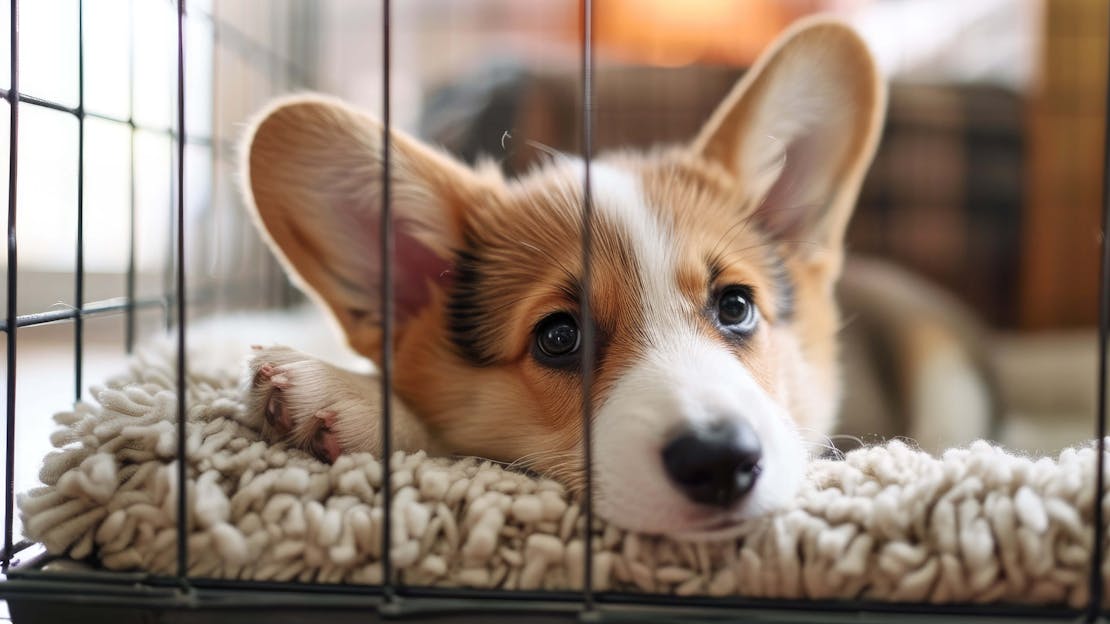
When should I start crate training?
Well this is a question that has plenty of opinions and options, if you are going to crate train your puppy then we would advise you start the day you bring them home, some dog breeders even crate train from the very beginning. It is also possible to crate train an adult dog too, however this could take a little more time and patience.
Here are reasons why it is good to crate train?
If you have a puppy it is a great idea to allow them to have their own personal space where they know they can relax, sleep and get away from certain stimulation's during the day.
Crate training your puppy is great if you have children as it allows you to set boundaries between your children and the puppy. They know that if the puppy is in their crate they need to be left alone.
Sometimes we are unable to watch and supervise your puppy all the time and the crate is a great safe place to put your puppy if you are going out to the shop or you simply need 5 minutes to get a household job done. When they are in their crate they cannot chew anything, swallow foreign objects and you know they aren’t going to escape.
Night time can be tricky for a puppy therefore their crate is great for setting a bedtime or even nap time routine.
When toilet training your new addition a crate can be very helpful, due to the puppy seeing their crate as their own personal safe space they're less likely to urinate or defecate in there. This can reduce the amount of accidents in the home meaning toilet training takes less time.
Having a crate trained dog is great during stressful times like bonfire night as they know their crate is a safe space and it helps to ease them.
They are great if you are travelling as they normally fit into the boot of your car. This allows your dog to be safe and secure plus if they are anxious about travelling this can help to ease them.
If in the future your dog has to have an operation or procedure this could mean they have to be confined to avoid further damage therefore if they are crate trained this will be much easier on you and your dog.
Every puppy chews to a certain degree, some only chew toys and others can chew anything they come across. Sometimes that can cause damage to your home and be a hazard to your dog if they swallow an object or they hurt themselves. Having a crate during these time periods can help them understand what they can and cannot chew.
Crate training your dog can help to teach them to settle, it is vital your puppy settles to allow them the time to rest and not become overstimulated.
It is vital to avoid misuse of the crate as this can cause confusion or can be a detriment to training. What to avoid?
It is really important to remember the crate shouldn’t be used as a punishment as it is their safe space and a place they love. We often find with our dogs that they love their crate and will go in with the crate door wide open.
Your dog shouldn’t constantly be in their crate as they love to learn and want to be part of the family. Plus if they spend too much time in there they can feel trapped and become frustrated meaning they won’t want their crate. Also, don’t forget dogs under 6 months of age struggle to hold their bladder and bowls for an extended time.
Separation anxiety is hard and a complex issue to resolve unfortunately for most dogs with severe separation anxiety crate training them isn't a solution. It will stop destruction to your house but this could mean they injure themselves in the attempt to be freed or if they are distressed.
Refrain from leaving toys or enrichment in their crate when they are unsupervised as they can destroy them and swallow pieces causing them to become ill or choke.
Every dog and home situation is completely different and there is no right or wrong way to train your puppy, therefore it is vital in understanding the needs of your puppy and yourself and adjust accordingly.
Crate training is just one tool to support you in training your puppy and allowing them to be happy in every situation.
Love from Olivia x
